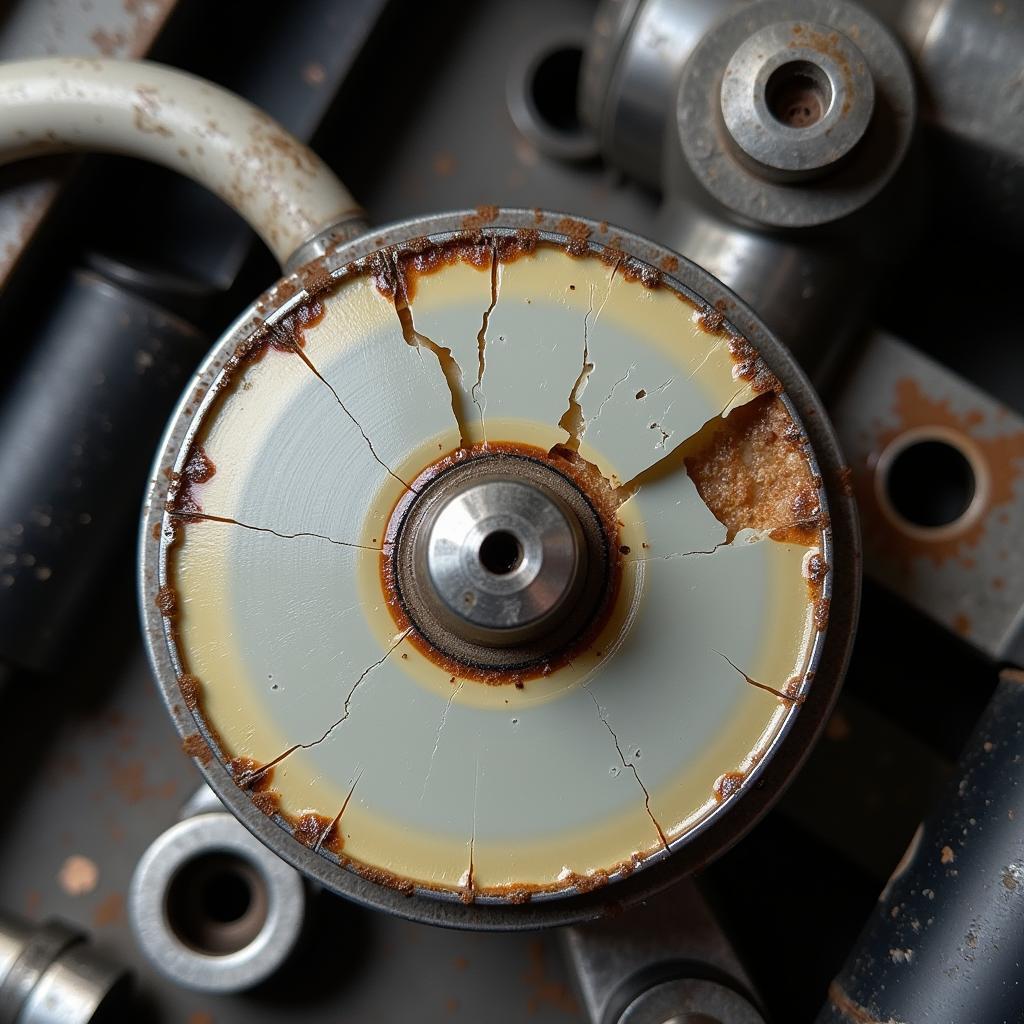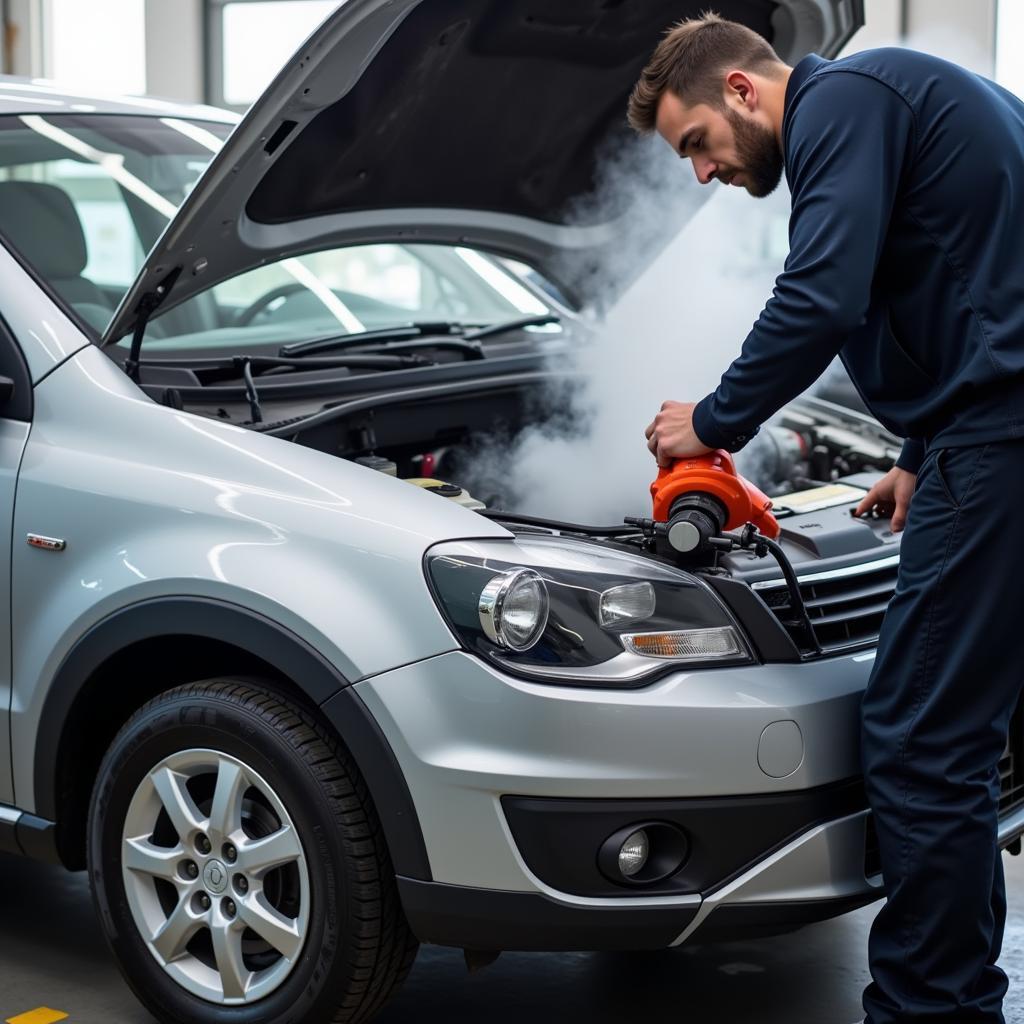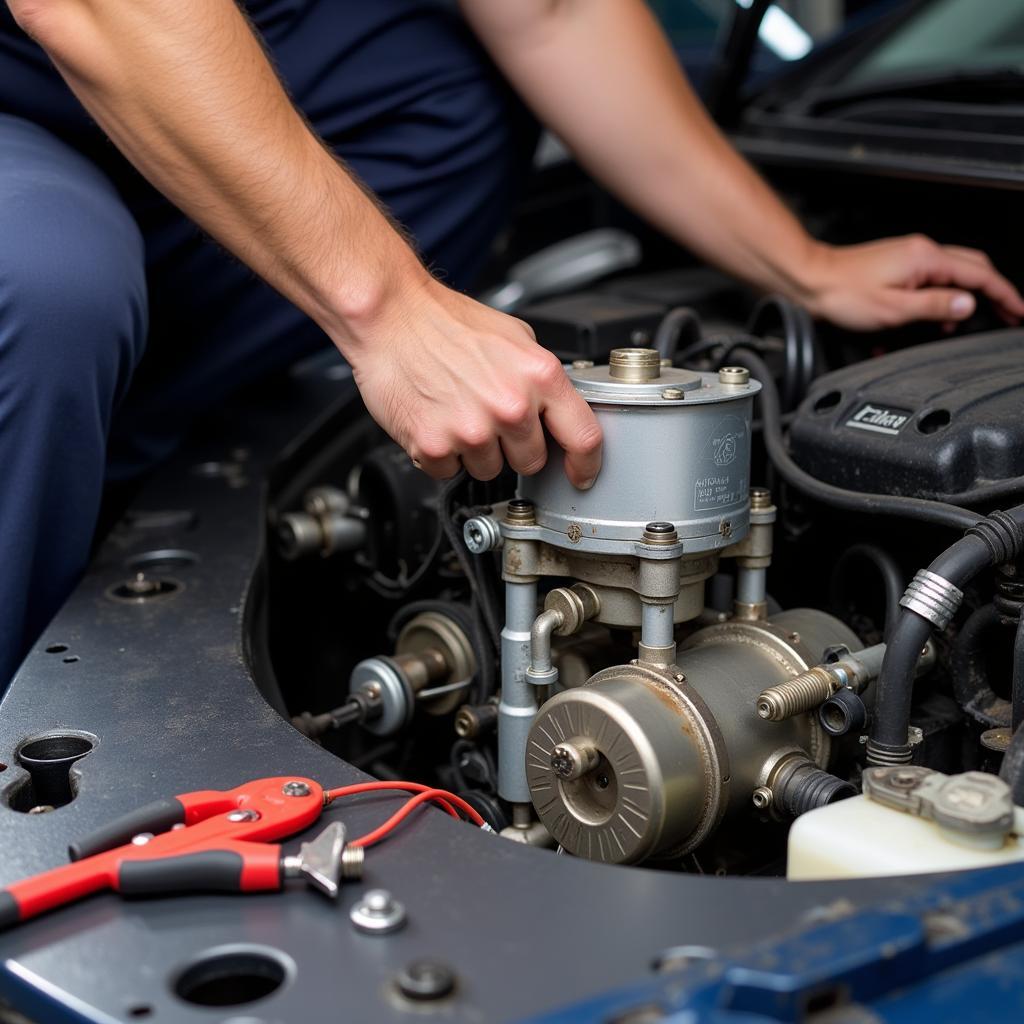Car Mechanical Fuel Pump Problems can leave you stranded. This guide provides a comprehensive overview of these common issues, helping you diagnose and fix them. Whether you’re a DIY mechanic or seeking professional help, understanding the intricacies of your vehicle’s fuel pump is crucial for a smooth and reliable driving experience.
A failing mechanical fuel pump can manifest in various ways, from a sputtering engine to a complete no-start. Recognizing the symptoms early is essential to prevent further damage and costly repairs. Let’s dive into the world of mechanical fuel pumps and explore the common problems that can arise.
Understanding Your Car’s Mechanical Fuel Pump
Mechanical fuel pumps, typically found in older vehicles, are engine-driven devices responsible for drawing fuel from the tank and delivering it to the carburetor. Unlike their electric counterparts, they rely on the engine’s rotation for operation. This simple yet robust design has served drivers well for decades. what is the problem if car doesn’t start
Common Mechanical Fuel Pump Issues
Several factors can contribute to car mechanical fuel pump problems. Here’s a breakdown of the most common culprits:
- Worn Diaphragm: The diaphragm is a vital component responsible for creating the pressure needed to pump fuel. Over time, it can wear out, crack, or rupture, leading to reduced fuel pressure or complete pump failure.
- Clogged Fuel Filter: A clogged fuel filter restricts the flow of fuel to the pump, putting extra strain on it and potentially causing premature wear.
- Fuel Contamination: Contaminants like rust, dirt, and water can damage the pump’s internal components, leading to decreased performance and eventual failure.
- Vapor Lock: This occurs when fuel vaporizes in the fuel lines, preventing the pump from drawing liquid fuel. It’s more common in hot weather conditions.
- Leaky Fuel Lines: Leaks in the fuel lines can cause a loss of pressure, making it difficult for the pump to deliver sufficient fuel to the engine.
 Damaged Mechanical Fuel Pump Diaphragm
Damaged Mechanical Fuel Pump Diaphragm
Diagnosing Car Mechanical Fuel Pump Problems
Recognizing the signs of a failing mechanical fuel pump is the first step towards a solution. Here’s what to look out for:
- Engine Sputtering or Stalling: A weak fuel pump may struggle to deliver enough fuel, especially under load, resulting in sputtering or stalling.
- Difficulty Starting: If your car cranks but won’t start, a faulty fuel pump could be the reason.
- Reduced Fuel Economy: A failing pump may not deliver the correct amount of fuel, leading to decreased fuel efficiency.
- Whining Noise from the Fuel Pump: A loud whining noise coming from the fuel pump area can indicate a problem with the pump’s internal components.
 Car Engine Sputtering Due to Fuel Pump Issue
Car Engine Sputtering Due to Fuel Pump Issue
If you suspect a fuel pump issue, here’s how to diagnose it further:
- Check the Fuel Pressure: Use a fuel pressure gauge to measure the pressure at the fuel line near the carburetor. Low pressure indicates a potential pump problem.
- Inspect the Fuel Lines: Check for any leaks or kinks in the fuel lines.
- Check the Fuel Filter: A clogged fuel filter can mimic the symptoms of a failing pump. Replace the filter if it’s dirty or obstructed.
Fixing Car Mechanical Fuel Pump Problems
Depending on the severity of the issue, you may be able to repair or replace the fuel pump. common car relay problems For minor problems, like a clogged fuel filter, a simple replacement may suffice. However, a damaged diaphragm often necessitates a complete pump replacement.
“Replacing a mechanical fuel pump can be a bit challenging, especially for those unfamiliar with car mechanics. It’s often best to consult a professional if you’re not comfortable working on your vehicle’s fuel system,” advises John Smith, a seasoned automotive technician with over 20 years of experience.
 Replacing a Car’s Mechanical Fuel Pump
Replacing a Car’s Mechanical Fuel Pump
Preventing Car Mechanical Fuel Pump Problems
Maintaining your car’s fuel system can significantly extend the lifespan of your fuel pump. Here are some preventative measures:
- Regularly replace the fuel filter: A clean fuel filter prevents contaminants from reaching the pump.
- Use quality fuel: Avoid using contaminated or low-quality fuel.
- Keep your fuel tank at least ¼ full: This helps prevent rust and sediment buildup in the tank, which can clog the fuel filter and damage the pump.
will all car problems show up on a diagnostic test While a diagnostic test might not always pinpoint a mechanical fuel pump problem directly, it can help identify related issues. c300 2008 used car problem For instance, in a used car like a 2008 C300, knowing the common issues can help you be proactive in addressing potential fuel pump problems. common problem with cars that have been sitting out Furthermore, if your car has been sitting out for a long time, it’s even more crucial to address potential fuel pump issues before they become major problems.
“Regular maintenance is key to preventing car mechanical fuel pump problems. A little proactive care can save you a lot of headaches down the road,” adds Maria Garcia, a certified automotive instructor.
Conclusion
Car mechanical fuel pump problems can be a nuisance, but understanding the causes, symptoms, and solutions can help you get back on the road quickly. By following the tips outlined in this guide, you can diagnose and address these issues effectively. Remember, regular maintenance is crucial for preventing future problems and ensuring the longevity of your vehicle’s fuel system. For further assistance or to schedule a car diagnostic, connect with AutoTipPro at +1 (641) 206-8880 or visit our office at 500 N St Mary’s St, San Antonio, TX 78205, United States. We’re here to help keep your car running smoothly.




Leave a Reply